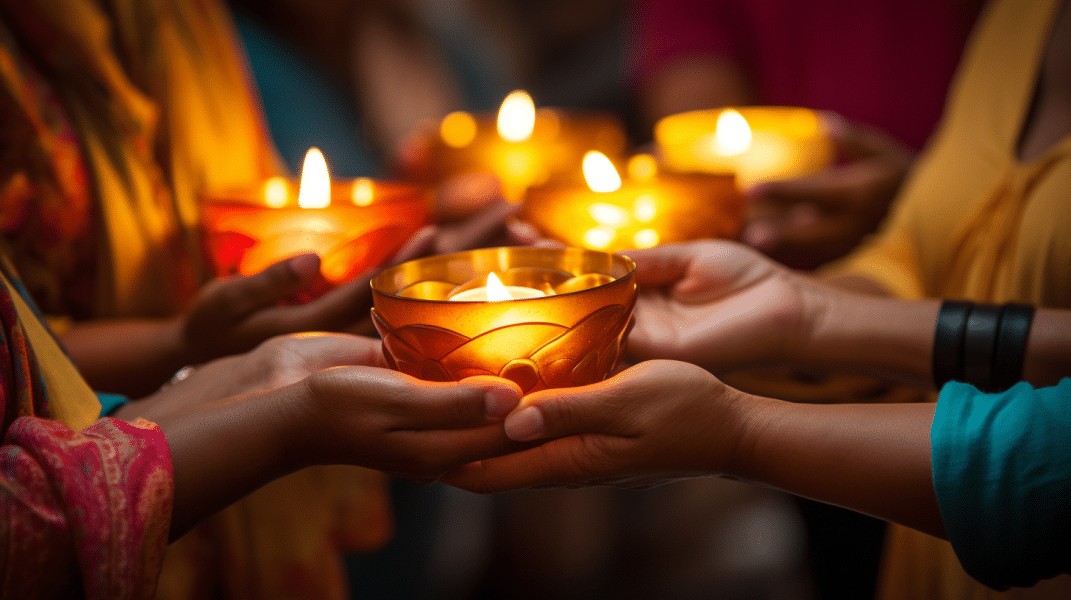Rituals hold a special place in the realm of human existence, serving as powerful connectors between the physical and spiritual world.
Across different cultures, religions, and indigenous traditions, rituals have played a significant role in shaping beliefs, expressing faith, and fostering a deeper sense of connection with the divine. In this article, we will dive into the meaning and importance of religious rituals, exploring their significance in various religions, cultures, and personal development.
1. Understanding the Definition of Rituals:
A ritual is a planned and purposeful action, often performed in a specific sequence, with symbolic meaning and intent. These actions, which may include prayers, chants, gestures, and symbolic objects, help individuals or communities connect with their spirituality, mark milestones, and honor sacred beliefs.
2. Exploring Different Types of Rituals:
Rituals can take various forms, ranging from daily prayers in individual rituals to larger communal ceremonies. They can be classified into several categories, including initiation rituals, purification rituals, healing rituals, mourning rituals, and celebration rituals. Each type of ritual serves a unique purpose and creates a sacred space for spiritual growth and connection.
3. The Significance of Rituals in Different Religions:
Religious rituals have been an integral part of numerous belief systems, such as Christianity, Catholicism, Buddhism, and Hinduism. While the specific rituals may vary, they share common elements such as prayer, meditation, scripture readings, and communal gatherings, which create a sense of unity and reinforce the beliefs of the followers.
4. Examples of Rituals in Christianity:
In Christianity, rituals play a key role in expressing devotion and strengthening faith. These may include baptism, Holy Communion, confirmation, marriage ceremonies, and funerals. Each ritual holds deep symbolism and helps individuals connect with their spiritual identity.
5. Rituals and Practices in Catholicism:
Catholicism incorporates a rich array of rituals, involving the sacraments, novenas, Stations of the Cross, and the recitation of the Rosary. These rituals provide a structured framework for worship, penance, and spiritual growth, reinforcing the teachings of the Church.
6. Rituals across Various Cultures and Traditions:
Rituals not only vary in different religions but also across diverse cultures and indigenous traditions. From the sun dances of Native American tribes to the fire ceremonies of Hinduism, each culture has unique rituals that express their identity, values, and beliefs.
7. Unveiling the Purpose of Religious Rituals:
Religious rituals serve numerous purposes, including promoting a sense of belonging, fostering community, creating sacred spaces, seeking blessings, offering gratitude, and providing comfort during life transitions. They also allow individuals to deepen their understanding of their faith and establish a personal connection with the divine.
8. Comparative Analysis of Religious Rituals:
By studying the rituals of different religions, one can observe both similarities and differences, offering insights into the universal human quest for spiritual meaning and transcendence. Comparative analysis helps foster interfaith dialogue, understanding, and appreciation of diverse religious practices.
9. Ritualism and its Role in Religion:
While rituals provide a framework for spiritual practice, excessive focus on rituals without understanding their deeper meaning can lead to ritualism – a mechanical or superficial repetition devoid of true spiritual engagement. It is important to strike a balance between the external practices and the inner intent behind them.
10. Rituals in Ancient and Modern Religions:
Rituals have been practiced since ancient times and continue to evolve in modern religious contexts. Whether it’s the rituals of the ancient Egyptians, the Aztecs, or contemporary religious practices, the essence behind these rituals remains consistent – connecting humans with the divine.
Religious rituals serve as powerful conduits between the physical and spiritual realms, allowing individuals and communities to deepen their faith, express reverence, and find solace. By understanding the meaning and significance of rituals in various religions, cultures, and personal development, we can embark on a journey of transformation and spiritual growth.

